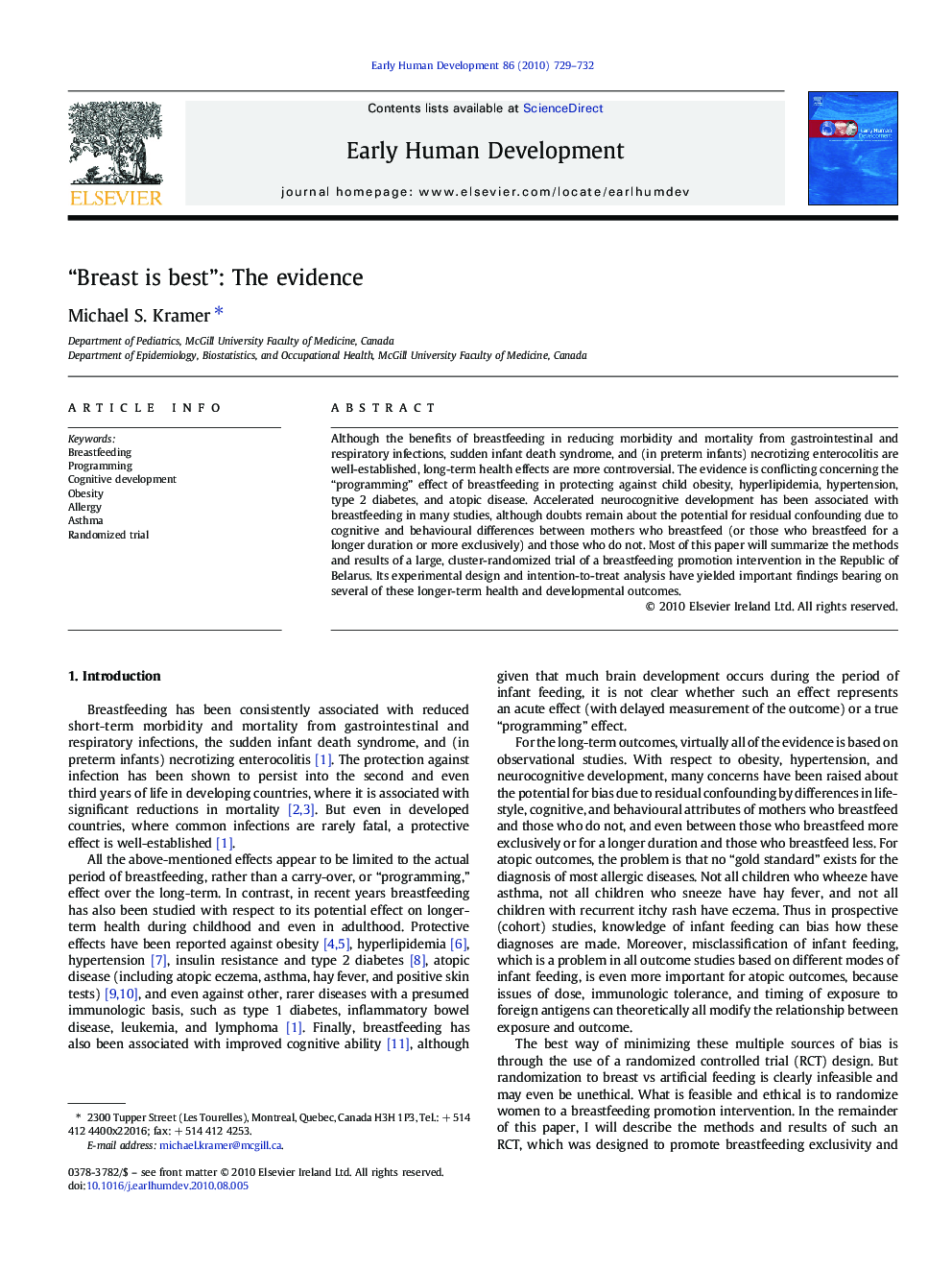| Article ID | Journal | Published Year | Pages | File Type |
|---|---|---|---|---|
| 3917415 | Early Human Development | 2010 | 4 Pages |
Although the benefits of breastfeeding in reducing morbidity and mortality from gastrointestinal and respiratory infections, sudden infant death syndrome, and (in preterm infants) necrotizing enterocolitis are well-established, long-term health effects are more controversial. The evidence is conflicting concerning the “programming” effect of breastfeeding in protecting against child obesity, hyperlipidemia, hypertension, type 2 diabetes, and atopic disease. Accelerated neurocognitive development has been associated with breastfeeding in many studies, although doubts remain about the potential for residual confounding due to cognitive and behavioural differences between mothers who breastfeed (or those who breastfeed for a longer duration or more exclusively) and those who do not. Most of this paper will summarize the methods and results of a large, cluster-randomized trial of a breastfeeding promotion intervention in the Republic of Belarus. Its experimental design and intention-to-treat analysis have yielded important findings bearing on several of these longer-term health and developmental outcomes.
